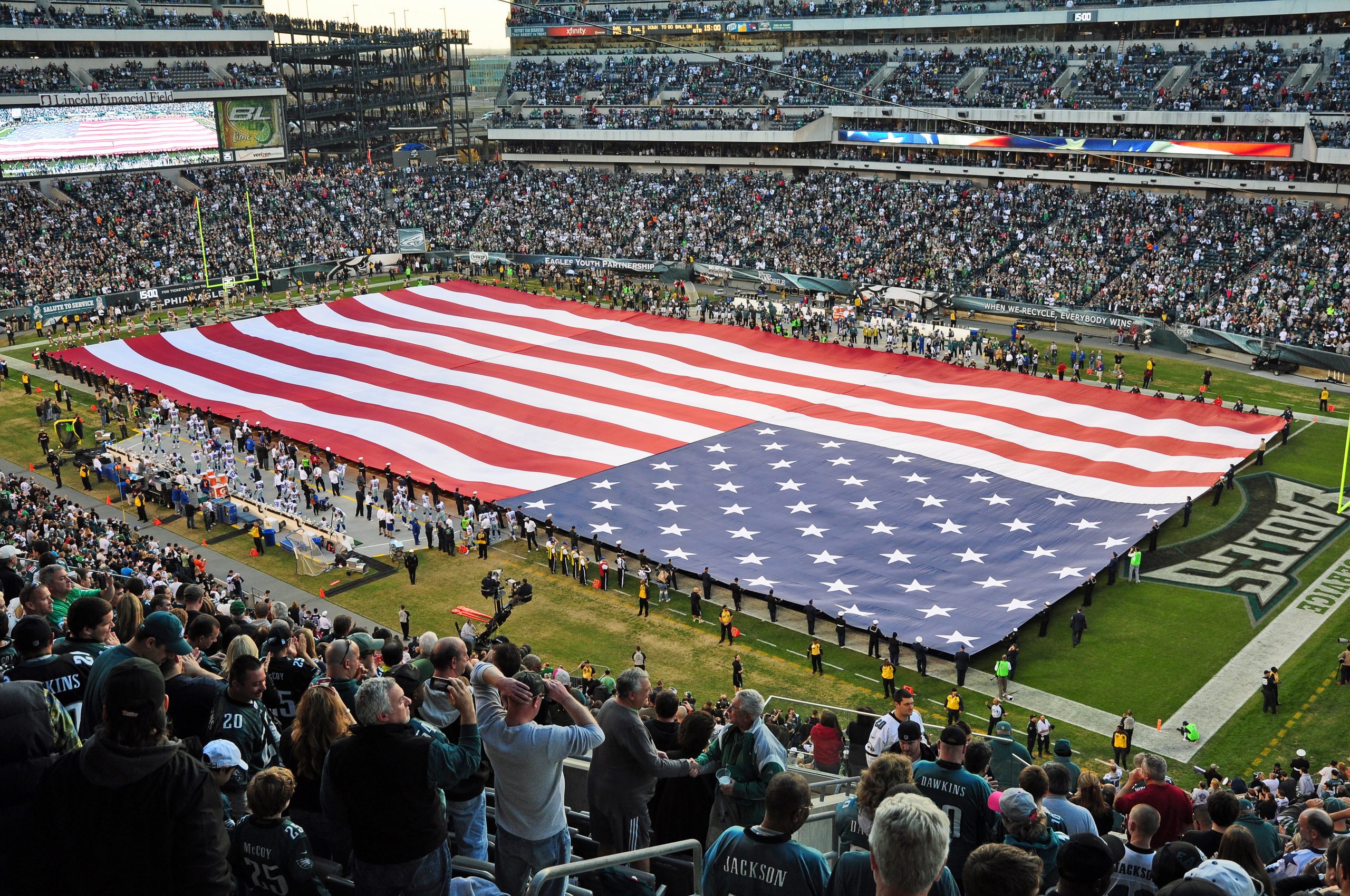
Everyone gets quiet, removes their hats, and puts their hand over their hearts to sing. In center field, soldiers hold the American flag. Fighter jets fly over the stadium as the national anthem plays. Sports are not only about the games, they also provide a platform for the presentation and celebration of all manner of collective identities and values–and in the United States, the message is often about nationalism and the military. In new research, Chris Knoester and Evan Davis examine whether Americans recognize this messaging or not.
They used data from the National Sports and Society Survey (NSASS) which asked nearly four thousand Americans, “if they felt sports taught a love of country, respect for the military, competition as a way of life, or how to be Americans.” They found that the vast majority of respondents did not believe that sports teaches nationalistic or militaristic values even while most, 84%, overwhelmingly agreed that sport teaches competition as a way of life. Given that the United States is one of the few countries in the world which plays the national anthem before sporting events and features armed forces in their ceremonies, their results are intriguing, to say the least.Interestingly, respondents who identified as male, heterosexual, Christian, and Republican were most likely to agree that sports teaches patriotic and militaristic values, with Black and Latinx respondents not far behind. In contrast, Americans who were white and college-educated were less likely to believe that sports taught any values. The authors suggest that this could be due to them viewing sports as truly neutral.
Over the years, sport sociologists have demonstrated that sport is a place where many Americans learn patriotic, nationalistic, and militaristic ideals. The fact that most Americans don’t believe this, and that those who do tend to be more conservative, less educated, or not white, raises some very important questions about the role of sport in contemporary American culture.

Comments